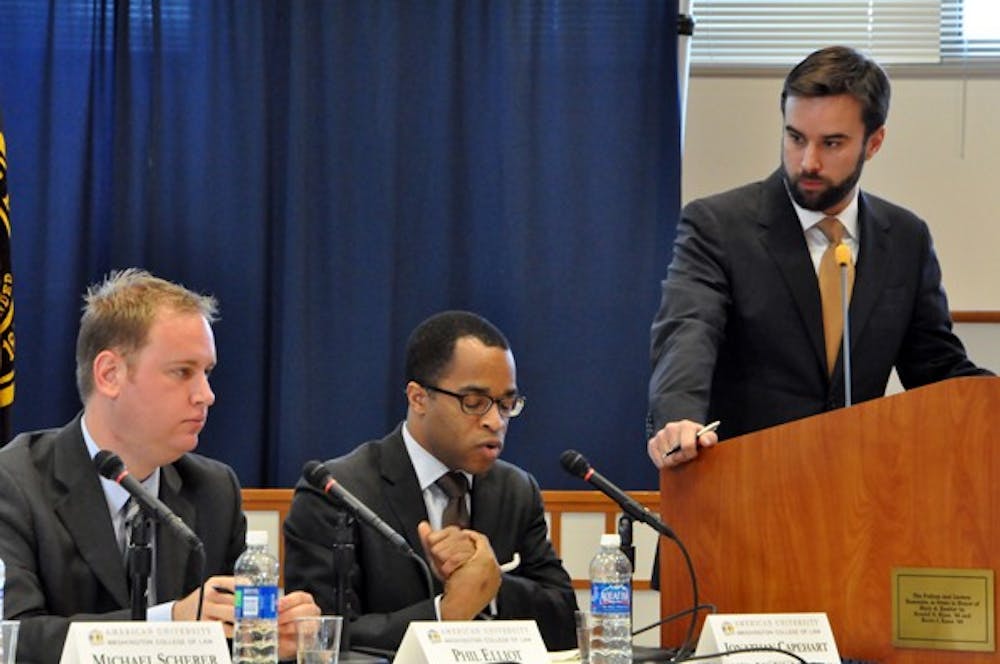A year after President Barack Obama’s inauguration, he is struggling to cope with populist backlash and vigorous Republican opposition, according to panelists at a recent discussion at AU.
Two panels of speakers spoke at the Washington College of Law Friday, Jan. 22, to examine Obama’s performance since his inauguration.
CNN’s Senior Political Analyst Bill Schneider said the recent wave of populist opposition Obama is facing with regards to health care and other policies is normal during times of economic instability. The populist tax revolts of the late 1970s and 1990s that rose from rough economic conditions and contributed to President Jimmy Carter’s and President George H.W. Bush’s defeats in their re-election bids, Schneider said.
Celinda Lake, a Democratic pollster and one of the party’s leading political strategists, said for Democratic candidates to win in upcoming elections and increase public trust in their policies, the party must “deliver on prosperity.”
“Unfortunately, the [American Recovery and Reinvestment Act of 2009] did not serve in voters’ minds as a job bill,” she said.
Jonathan Capehart, an editorial writer for The Washington Post, said congressional Republicans have contributed to the difficulty Obama has been experiencing in passing legislation.
“You can only change Washington if you have a willing partner,” Capehart said. “The Republican Party made it very clear from the very beginning that they were going to say ‘no’ to just about everything, to stop everything.”
Just a few days before the panel, Republican State Sen. Scott Brown defeated Attorney General Martha Coakley, a Democrat, in a Massachusetts special election to fill the U.S. Senate seat held by the late Sen. Edward Kennedy. Kennedy had been a strong supporter of health care reform during his tenure in the Senate.
Brown represents the Senate Republicans 41st vote, enough to make party-line filibusters, giving Republicans the means to effectively stop legislation from moving forward.
According to the results of Rasmussen Reports’ Jan. 23 Daily Presidential Tracking Poll, 61 percent of voters nationwide believe the health care reforms Obama and the Democratic majorities in the House and Senate are working to enact should be put aside in favor of focusing on the economy. Seventy percent believe reaction to health care reform efforts played at least a somewhat important role in Brown’s victory.
Katlyn Schreck, a freshman in the School of Communication — who did not attend the panel — said there is a bright side the president can find, despite difficulties.
“I think there are a couple of things that he knows he has to reevaluate,” Schreck said. “He’s realizing that the country is not necessarily all behind him on health care, and his ratings have gone down, but I think that’s normal in the first year. Under all the pressure he’s under, I think he’s doing a really good job of keeping his head up and hanging in there.”
According to the Gallup polling organization, Obama began 2010 with a job approval rating of 50 percent, up from a low of 47 percent in December. His rating is down from a high of 68 percent in April.
The panels were moderated by Michael Scherer, a Time Magazine White House correspondent who covered 2008 Republican presidential candidates.
You can reach this staff writer at hperlman@theeagleonline.com.





